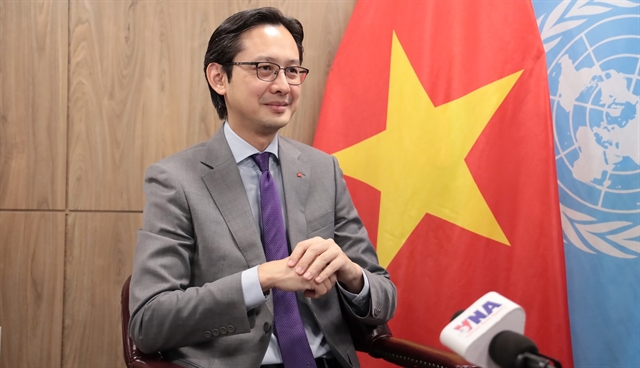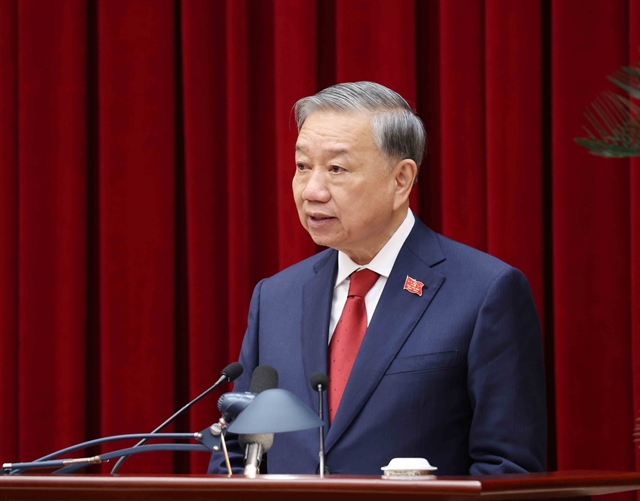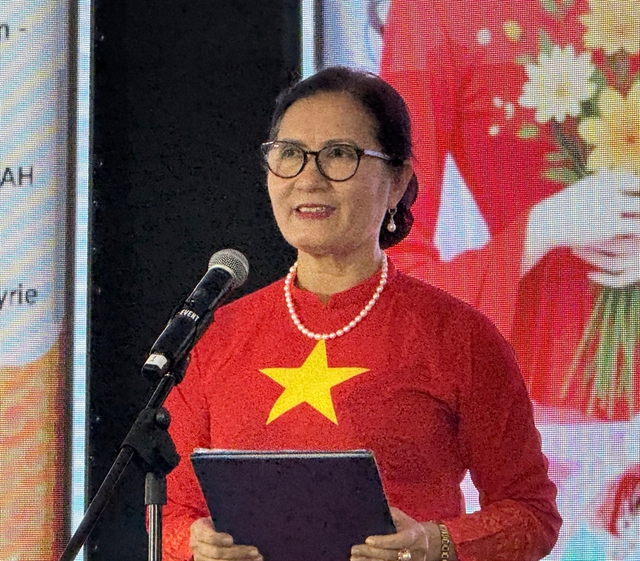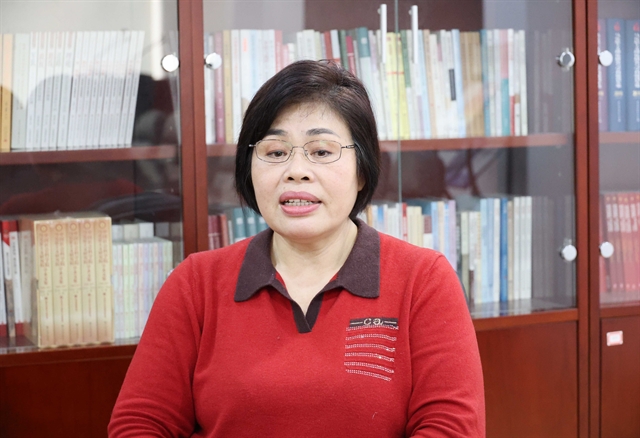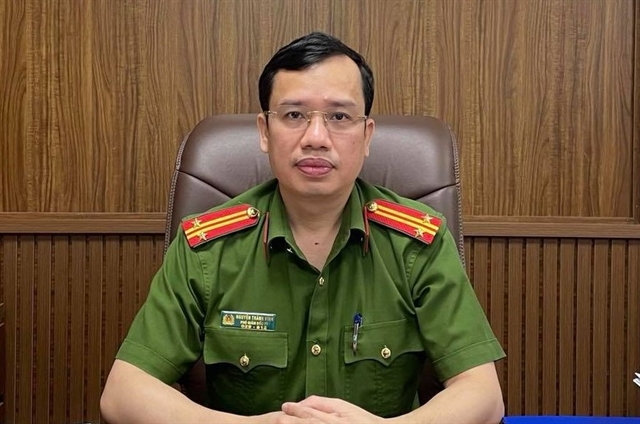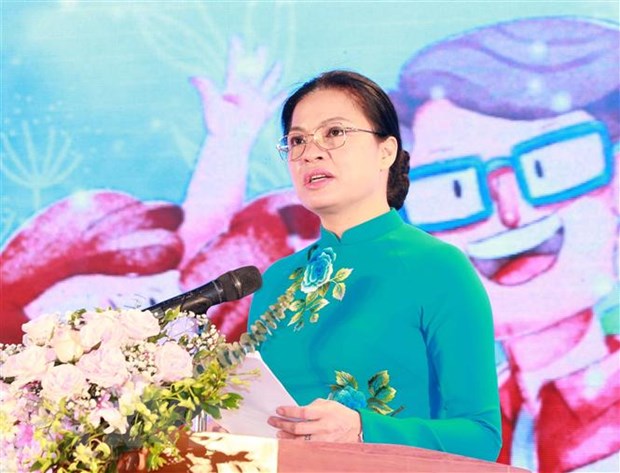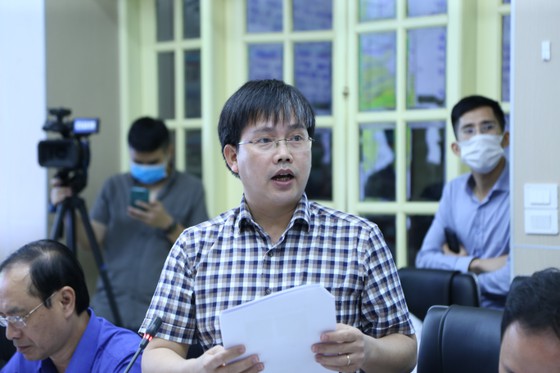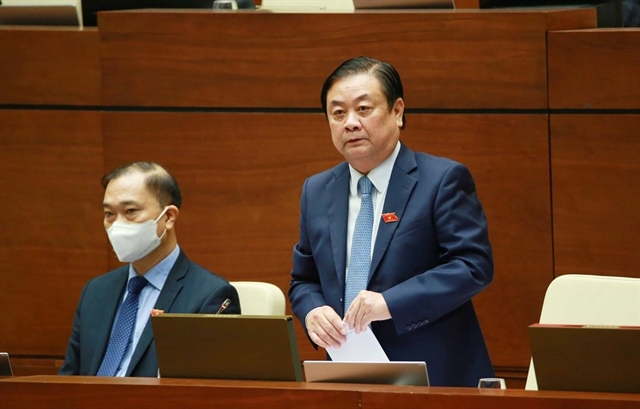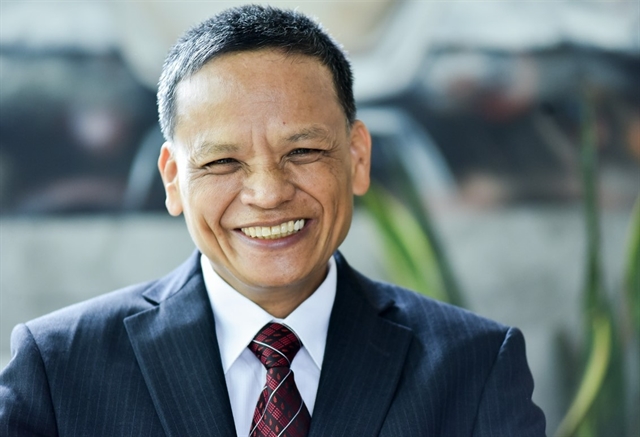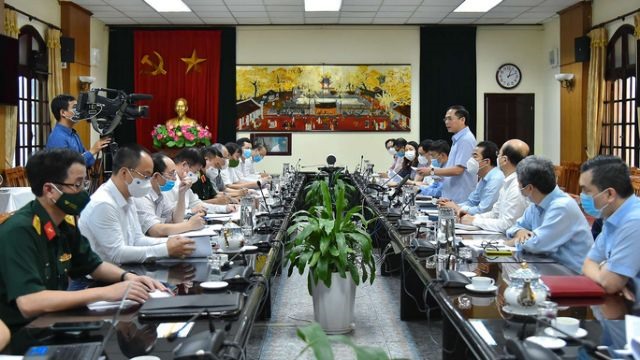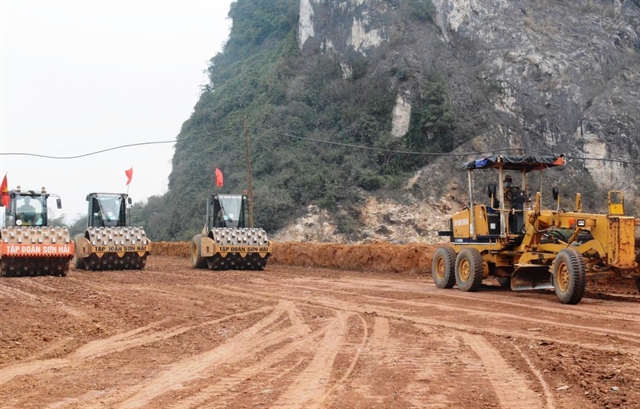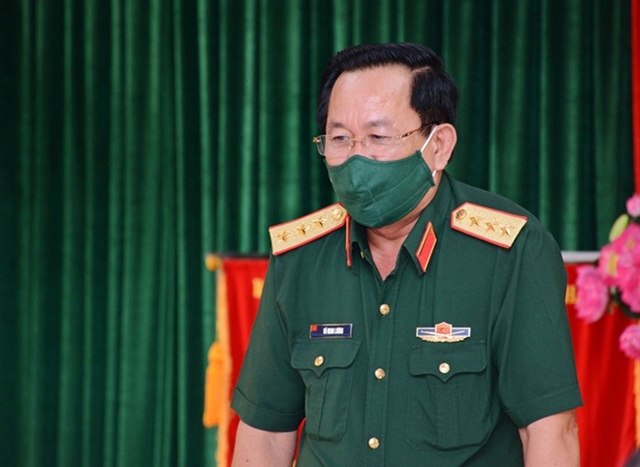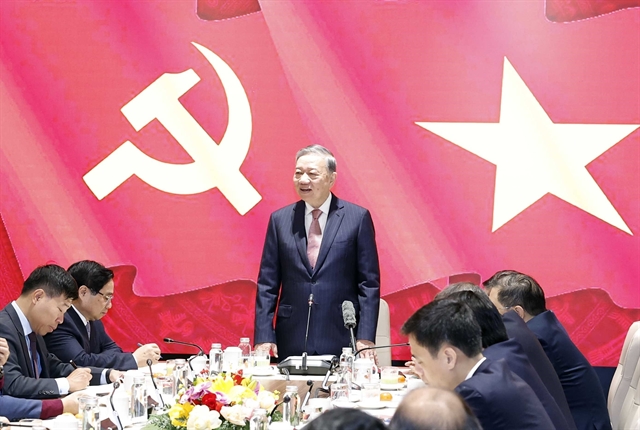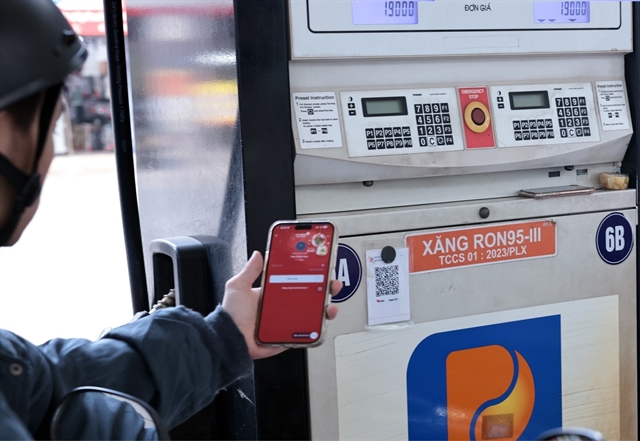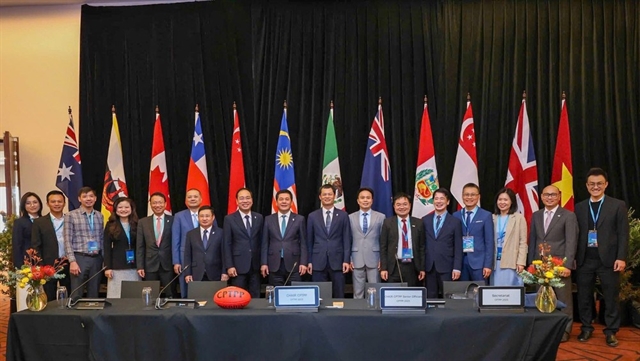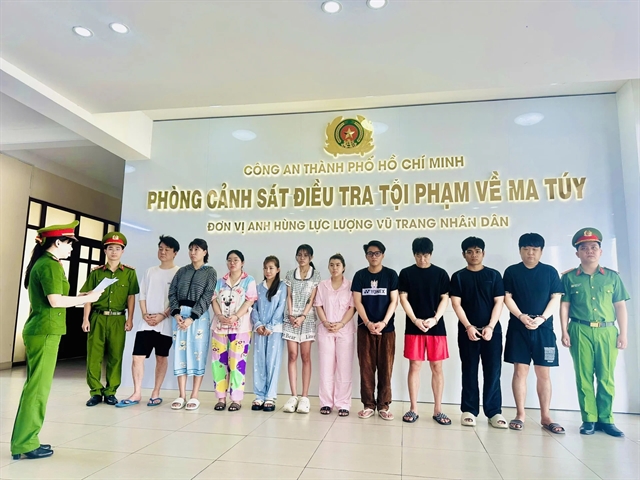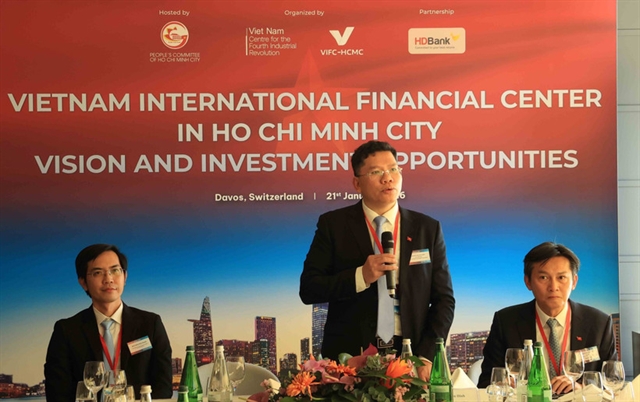
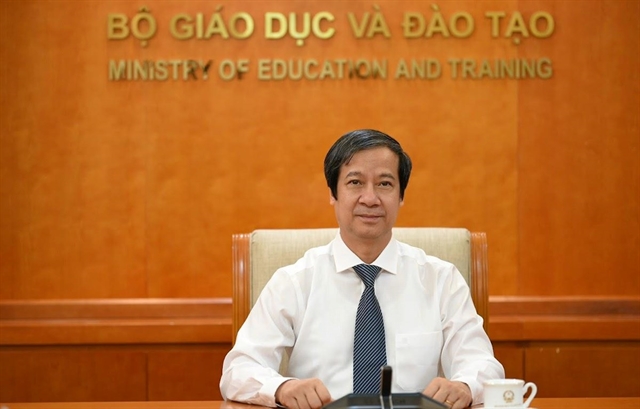
|
| Minister of Education and Training Nguyễn Kim Sơn. — VNA/VNS Photo |
As the new school year prepares to get underway, many students across the country will have to make do with virtual learning due to COVID-19 outbreaks nationwide. Vietnam News Agency spoke to education minister Nguyễn Kim Sơn ahead of this challenging year.
What are the major central goals and objectives of the education sector in this school year?
We expect that the COVID-19 pandemic will continue for a long time, so in the next school year, we will have to focus on two simultaneous jobs, ensuring the quality of the education and guaranteeing safety for both teachers and students.
In the short-term, each locality should devise flexible plans on teaching and studying to fit the circumstances with a view of ensuring the core knowledge that the students must acquire.
With virtual learning expected to be continued in most localities in the country? What will the education authorities do to ensure the stated objectives?
The education ministry has issued a general plan for the school year, and based on this, localities could determine the timeframe according to their own situation, but one thing of note is to take full advantage of the time when students can go to schools for direct learning, while still maintaining enough flexibility to make sure the students meet the desired outcomes on knowledge acquisition by end of the school year.
In the beginning, virtual learning is but a temporary solution when schools are forced to close. But by now, we have come to consider that virtual learning is a long-term activity, both as a response to the ongoing pandemic and as part of the digital transformation efforts. Even where students can still go to schools for in-person learning, virtual lessons are still a very good supplementary component.
The education ministry has issued many documents and instructions on virtual learning and knowledge testing. We will continue to review the activities to make more adjustments, with a focus on training of virtual teaching skills for the teachers themselves, as well as developing more digital, online learning materials.
Localities should be more attentive and proactive with virtual learning, more timely in handling emerging problems during the implementation of this method, utilise both online learning and TV lessons. The attention and cooperation from the families also holds a significant role, especially in the case of primary school and kindergarten students. Local governments must provide support for disadvantaged students who might be struggling to have necessary tools for remote learning.
Along with urgent solutions, the education ministry also plans to implement long-term activities to strengthen digital transformation in education administration and management, deploy education management information systems for the whole sector, with data shared and updated between different departments and institutions, and between the education sector and other national databases as well as rolling out advanced digital-based school governance models to ensure practicality and efficiency.
2021-22 is the first schoolyear when the new general education curriculum is being implemented in second and sixth grade. How are the preparations for this going?
After one year of implementing the first grade curriculum, the education ministry has held review sessions with local education authorities to draw lessons for the next grades. Most local authorities have expended a lot of resources on infrastructure and equipment and teachers in this first year.
The roll out was met with difficulties, especially given the pandemic, but we have to be persistent with the idea and stance on education reforms and the new philosophy, in which, the highest priority in general education is teaching life skills, the approach to life, social responsibility, self-learning capacity, along with other cognitive and thinking skills, among others, as a basis to develop high human resources for the country.
The on-the-ground implementation of the new policy to allow privately composed textbooks shows that the quality of the drafts is central to having a good set of textbooks. No good final products could come from weak drafts even after the assessment process. In the future, we need to further engage experienced and skilled teachers and experts in writing textbooks. Other activities like pilot use, training for teachers, selecting which set of textbooks to use, or the publication of textbooks all could be done better.
The ministry will work with pedagogical universities to discuss the items related to training teachers, as well as developing training majors in the pedagogical field, to gradually resolve the problem of teacher shortages, meeting the requirements of general education reform in the future.
Prime Minister Phạm Minh Chính recently asked the education sector to have “genuine learning, genuine examination, genuine talents.” You have also affirmed that the education ministry will have specific measures for this request. What will these measures be and how will they be carried out in the upcoming school year?
Building a quality education is everyone’s wish, a major responsibility of the Ministry of Education and Training, but the transformation lies not only on the State management role of the ministry but also on the active involvement of all relevant agencies, business communities and the society.
This will be a long-term process that needs roadmaps and a lot of time, but one thing that needs to be done immediately is a changing of the mindset and action in all things large and small, all policies and activities should have at its basis the objective of addressing real-life problems.
Our State management activities and policy promulgation will be carried out in that spirit. The ministry will also make changes to the curriculum with a view towards practicability, streamlining or removing altogether ineffective and redundant parts, consistent with the ongoing pandemic.
Genuine learning and genuine training will be the prime focus and the principle to follow, whereas ossified teaching and learning methods full of clichés and repetition should be eliminated, so that creativity of both teachers and students can be engaged and unleashed. All education departments and institutions should determine which would be the best way to assess ‘genuine teaching and learning.’ Teaching methods need to pay attention to relevance, experience, equipping students with the capacity to self-study, with a focus on educating moral values, virtues and comprehensive development for the students. This is something that must be done consistently, patiently and persistently.
At the university level, the autonomy mechanism is making strides in terms of fostering changes. However, with greater autonomy comes greater social accountability to the society for the quality of training. In the past, many higher education institutions have started to focus on quality objectives, through the development of programmes and designing of output standards that are closely in line with practical demands and situations, making scientific research and innovation the basis for their efforts to boost the quality of education and training.
But overall, higher education still has a lot to do and we will continue to review and improve regulations to tighten the quality of training in this stage of education, as well as step up monitoring and inspections.
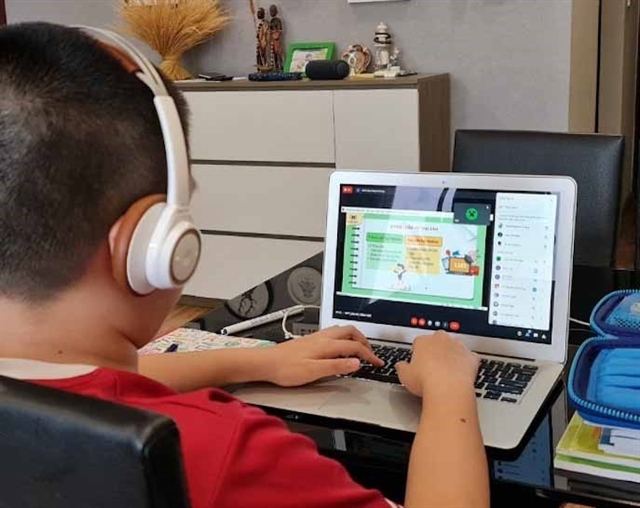
|
| A student in Hà Nội doing an exercise during an online learning session. — VNA/VNS Photo Thanh Tùng |
With only a few days remaining till a very challenging school year begins, how do you feel, personally? Do you have a message to the millions of students and teachers across the country?
The 2021-22 school year will have a difficult start with COVID-19 outbreaks in many localities. Allow me to send my sympathies to the families who have lost their relatives due to the pandemic, to the people in outbreak-affected areas, and my best regards to teachers, students and parents all over the country.
The entire education sector will need to do their best to cope with the outbreaks, minimising the adverse impacts on teaching and learning, ensuring COVID-19 safety as well as core quality needs, supporting the disadvantaged and poor students.
Our teachers, in recent times, have been very ardent and dynamic and responsive, tackling head on the requirement for change in teaching method, moving online. I hope that they will continue to remain committed to this responsibility and exercise creativity to deliver quality lessons to students.
For students and parents, I hope they will by different means overcome the challenges of the new learning method to adapt to the new normal, so that the learning will not be disrupted, and more importantly, students could find joy in learning, even with the new technology-based method. — VNS


